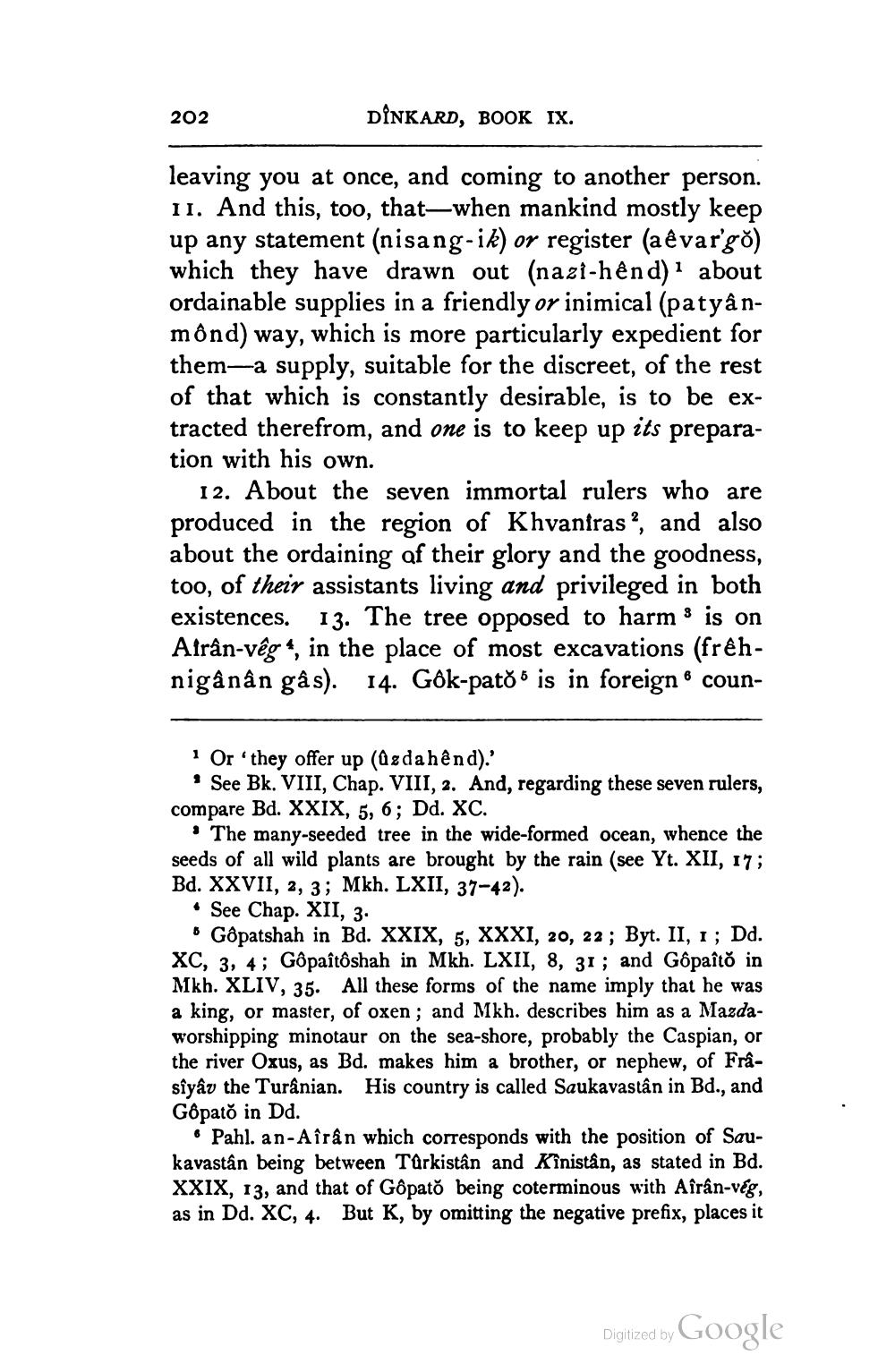________________
202
DİNKARD, BOOK IX.
leaving you at once, and coming to another person. II. And this, too, that—when mankind mostly keep up any statement (nisang-ik) or register (aêvar'go) which they have drawn out (nazi-hênd) · about ordainable supplies in a friendly or inimical (patyânmônd) way, which is more particularly expedient for them-a supply, suitable for the discreet, of the rest of that which is constantly desirable, is to be extracted therefrom, and one is to keep up its preparation with his own.
12. About the seven immortal rulers who are produced in the region of Khvanfras?, and also about the ordaining of their glory and the goodness, too, of their assistants living and privileged in both existences. 13. The tree opposed to harm is on Afrân-veg 4, in the place of most excavations (frêhnigânân gâs). 14. Gôk-patoo is in foreign coun
Or 'they offer up (az da hend).' * See Bk. VIII, Chap. VIII, 2. And, regarding these seven rulers, compare Bd. XXIX, 5, 6; Dd. XC.
• The many-seeded tree in the wide-formed ocean, whence the seeds of all wild plants are brought by the rain (see Yt. XII, 17; Bd. XXVII, 2, 3; Mkh. LXII, 37-42).
• See Chap. XII, 3.
• Gôpatshah in Bd. XXIX, 5, XXXI, 20, 22; Byt. II, 1; Dd. XC, 3, 4; Gôpaîtôshah in Mkh. LXII, 8, 31; and Gopaîto in Mkh. XLIV, 35. All these forms of the name imply that he was a king, or master, of oxen; and Mkh. describes him as a Mazdaworshipping minotaur on the sea-shore, probably the Caspian, or the river Oxus, as Bd. makes him a brother, or nephew, of Frâsîyâv the Turânian. His country is called Saukavastân in Bd., and Gopato in Dd.
& Pahl. an-Aîrân which corresponds with the position of Saukavastân being between Türkistan and Kinistân, as stated in Bd. XXIX, 13, and that of Gôpato being coterminous with Aîrân-veg, as in Dd. XC, 4. But K, by omitting the negative prefix, places it
Digitized by Google




